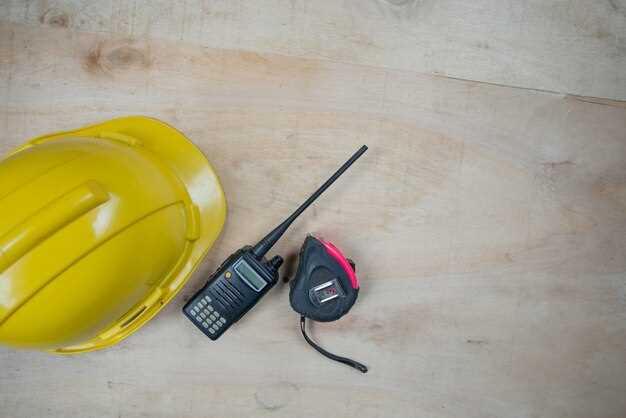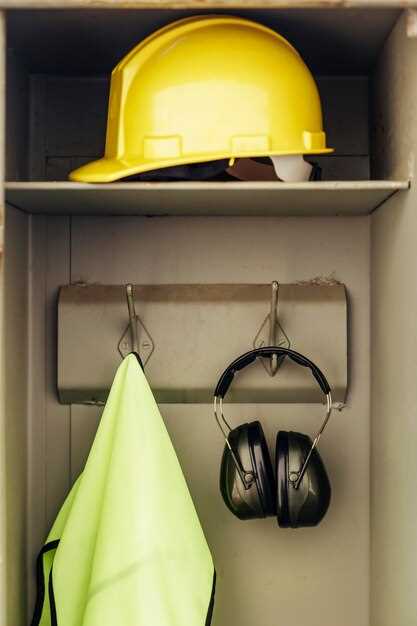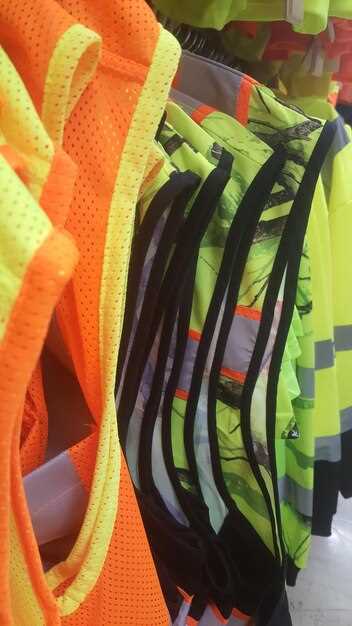
When it comes to setting up a garage, safety should always be a top priority. A well-equipped garage not only enhances productivity but also ensures the protection of both the user and the tools in use. Investing in the right safety gear is essential to mitigate risks associated with common garage activities, such as repairing vehicles, woodworking, or handling heavy equipment.
In any garage environment, the potential for accidents is significant. Therefore, incorporating essential protection gear into your setup can safeguard against injuries while fostering a more efficient workspace. Protective equipment such as gloves, goggles, and ear protection are indispensable items that should be part of your toolkit. Each piece of gear plays a critical role in shielding against potential hazards, from flying debris to harmful chemical exposure.
Choosing the right gear not only enhances safety but also promotes a more confident approach to various tasks. Proper safety equipment acts as a reliable buffer against accidents, allowing you to focus on your projects without the constant worry of injury. By prioritizing safety gear in your garage setup, you create an environment that balances functionality and security, enabling you to work efficiently and effectively.
Choosing the Right Gloves for Different Garage Tasks

When it comes to ensuring safety in your garage, selecting the appropriate gloves for various tasks is essential. The right pair of gloves can protect your hands from chemicals, sharp objects, and extreme temperatures, making them a must-have safety gear in any workspace.
1. General Maintenance: For everyday tasks such as cleaning, organizing, or minor repairs, lightweight, breathable gloves made from materials like cotton or nitrile are ideal. These gloves provide basic protection while allowing for dexterity, making it easier to handle tools and small parts.
2. Heavy-Duty Work: If you’re involved in projects that require heavy lifting or handling sharp objects, opt for heavy-duty gloves made of leather or reinforced synthetic materials. These gloves provide enhanced grip and protection against cuts and abrasions, ensuring your hands stay safe during tough tasks.
3. Chemical Handling: When working with harsh chemicals or solvents, it’s crucial to use gloves specifically designed for chemical resistance. Nitrile and neoprene gloves offer superior protection against a wide range of substances, preventing skin irritation and potential burns.
4. Automotive Work: For those who spend time working on cars or machinery, mechanics’ gloves with reinforced palms and fingers are a smart choice. These gloves provide a good grip, protect against oil and grease, and enhance dexterity, allowing you to maneuver small components with ease.
5. Winter Projects: If you often work in cold conditions, insulated gloves are essential. Look for gloves that are both warm and waterproof to maintain comfort while providing protection against frostbite and exposure to the elements.
Overall, selecting the appropriate gloves not only enhances your safety but also ensures you can work efficiently. Evaluate your garage tasks and choose the gloves that best fit your needs to keep your hands safe and your projects successful.
Protective Eyewear: Selecting the Best Options for Your Projects
When engaging in projects within your garage, protective eyewear is an essential piece of gear that cannot be overlooked. Flying debris, dust, and harmful chemicals pose significant risks to your eyes. Therefore, selecting the right protective eyewear is crucial for ensuring optimal protection.
There are several types of protective eyewear available, including safety glasses, goggles, and face shields. Safety glasses generally provide basic protection against impacts and are suitable for light projects. Look for models that are ANSI Z87.1 certified, which indicates they meet safety standards for industrial use.
If your projects involve handling chemicals or working in dusty environments, goggles are a better option. They provide a secure fit around the eyes, preventing particles and liquids from entering. Make sure to choose goggles that offer anti-fog and anti-scratch features to enhance visibility and durability.
For maximum protection during activities that pose a high risk of injury, consider using a full-face shield. This type of gear covers the entire face and is ideal for tasks like grinding or welding, where debris can fly in various directions. Select a shield with a clear visor to maintain visibility while working.
Additionally, look for eyewear that includes UV protection, especially if you will be working outdoors. Sun exposure can damage your eyes over time, so gear designed with UV-filtering lenses is vital. Polarized lenses can also reduce glare and improve clarity in bright environments.
Comfort and fit are essential factors when selecting protective eyewear. Ensure that the glasses or goggles sit snugly without being too tight, allowing for extended wear without discomfort. Adjustable straps and cushioned edges can enhance the fit and prevent slippage during active projects.
Ultimately, the right protective eyewear is an investment in your safety. By carefully considering your project’s needs and selecting gear that meets the necessary protection standards, you can ensure that your eyes are well safeguarded, allowing you to focus on completing your projects effectively.
Understanding the Importance of Proper Footwear in a Garage Environment

In any garage setup, the right footwear is crucial for ensuring safety and protection. The garage is often a workspace surrounded by tools, machinery, and various materials that can pose risks to unprotected feet. Wearing suitable shoes can significantly reduce the chances of injuries caused by dropped objects, sharp tools, and slippery surfaces.
Safety shoes, specifically designed for industrial or workshop environments, typically feature reinforced toes, slip-resistant soles, and durable materials. These characteristics provide essential protection against heavy items that may fall or roll, as well as chemical spills that can occur during maintenance tasks. Footwear with proper grip helps prevent slips and falls, a common hazard in garages where oils and other substances might create slick surfaces.
Furthermore, proper footwear can offer support for long hours of standing and heavy movements, minimizing fatigue and improving overall work efficiency. Investing in high-quality safety shoes tailored for garage use is a proactive measure that prioritizes personal safety and ensures a more productive work environment.
In summary, selecting the right footwear for a garage environment is not merely about comfort but is a vital aspect of workplace safety and injury prevention. Proper footwear combines functionality with essential protection, enabling individuals to work confidently and effectively in their garages.




